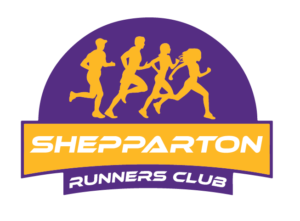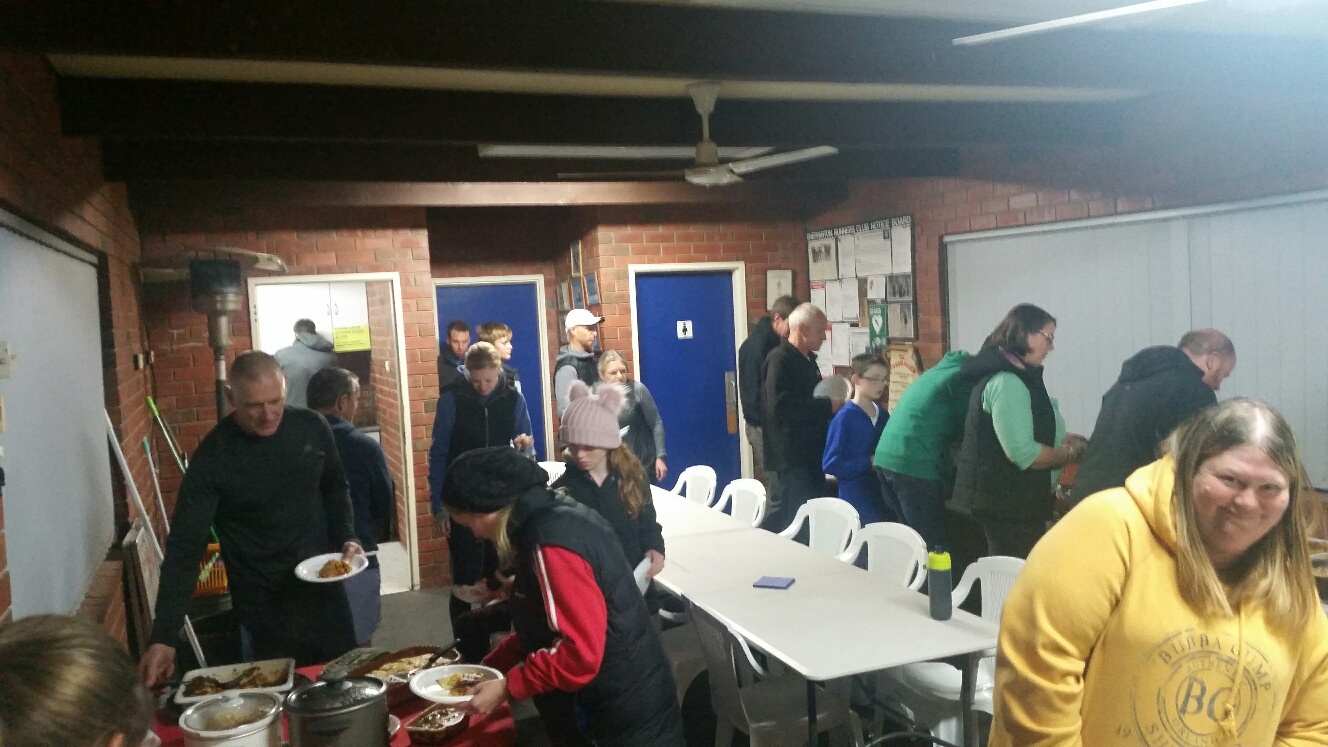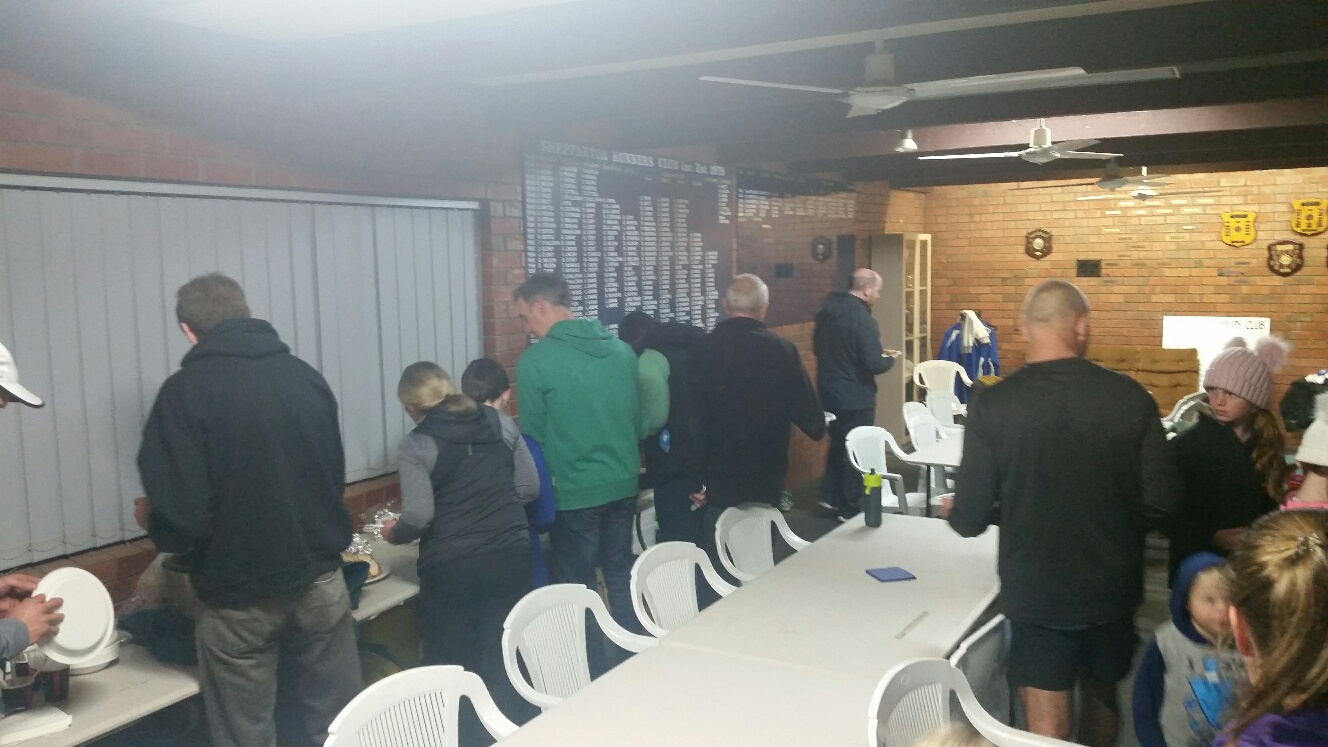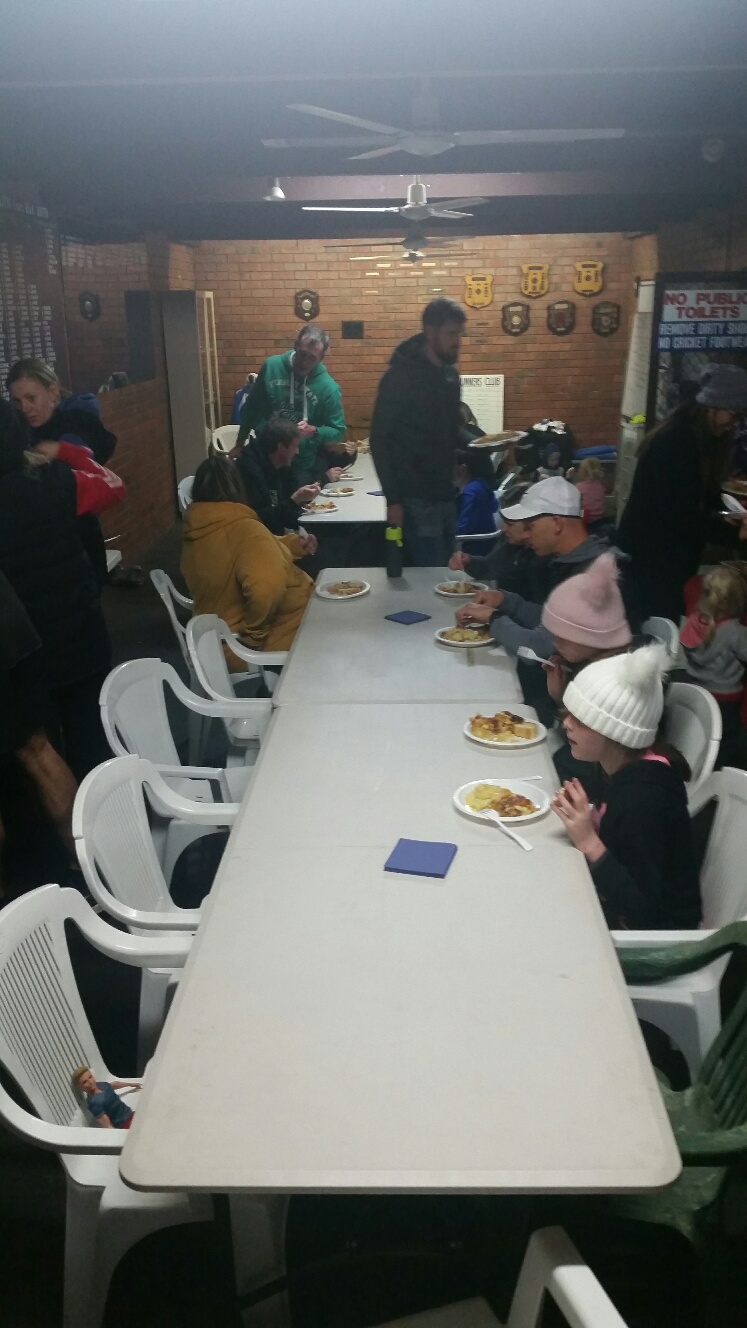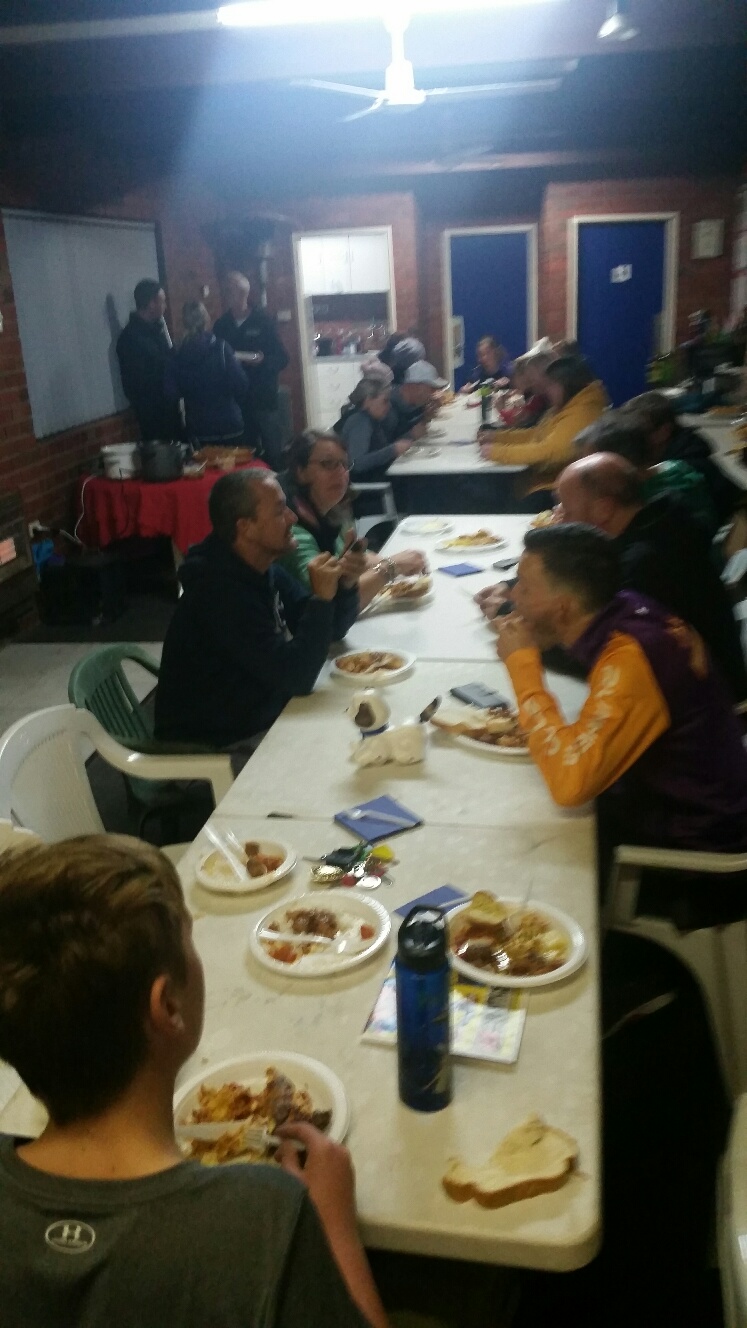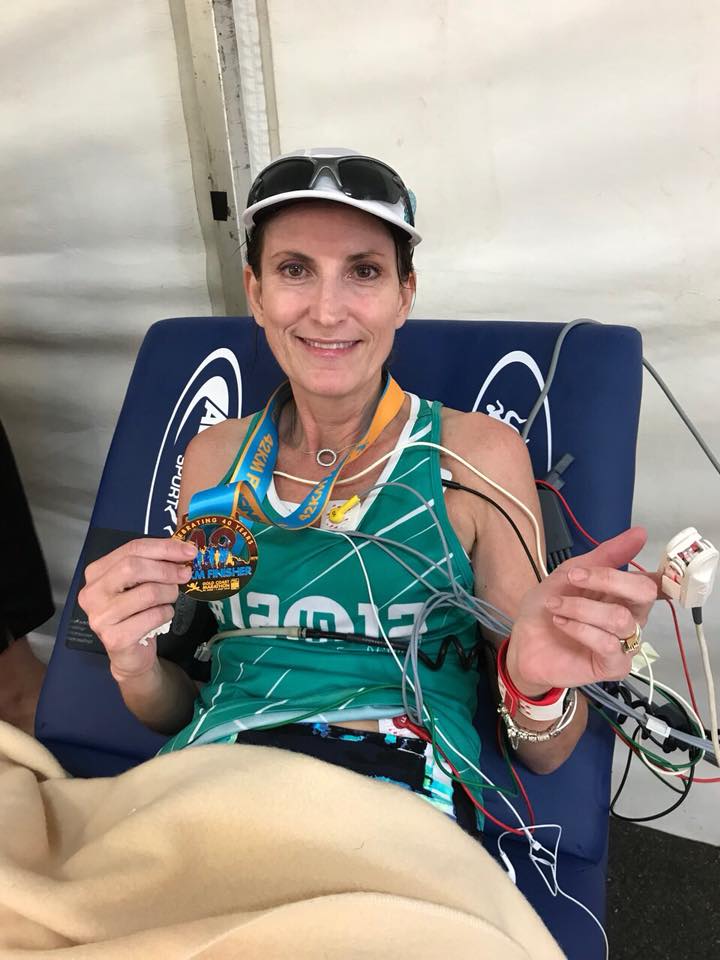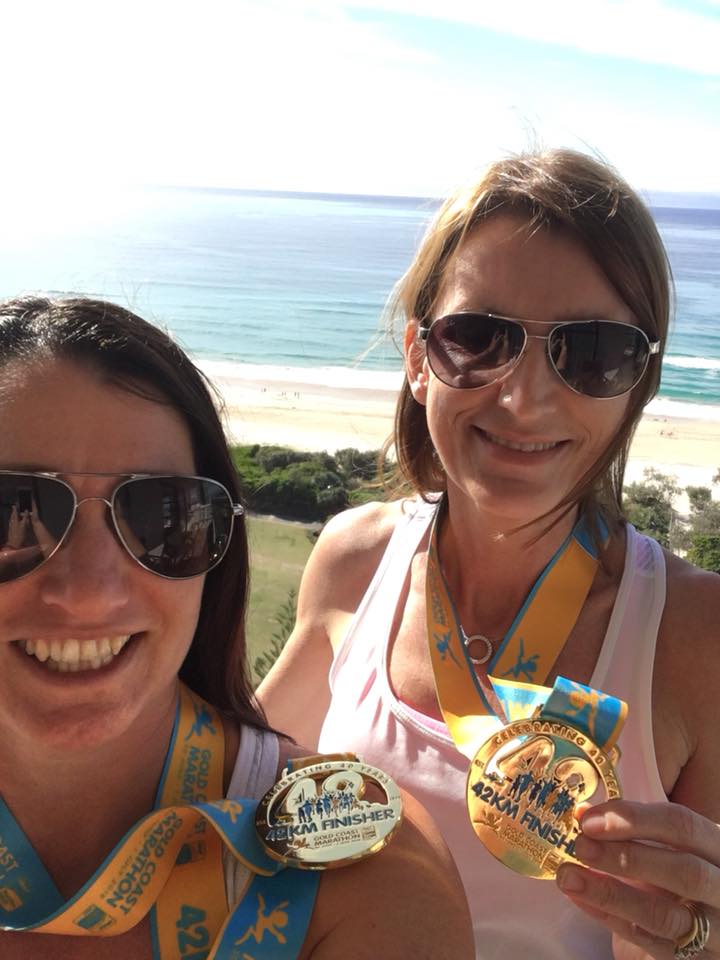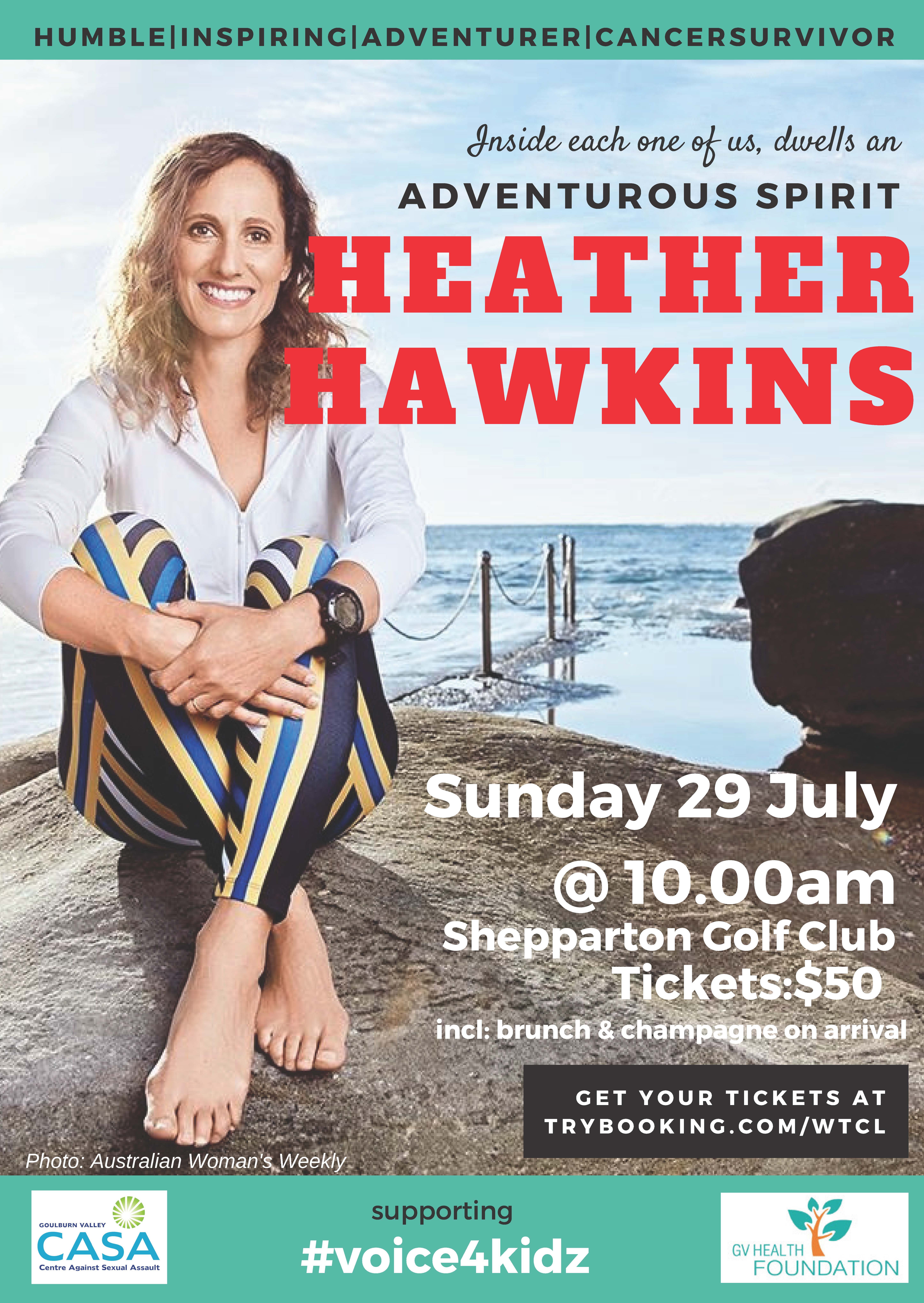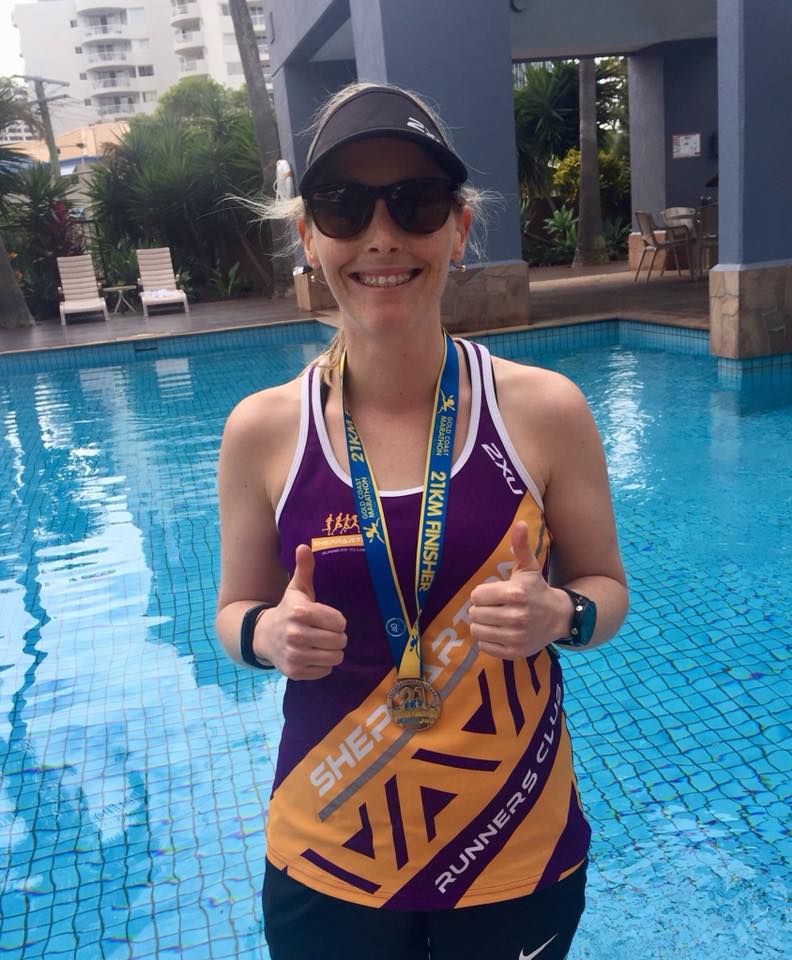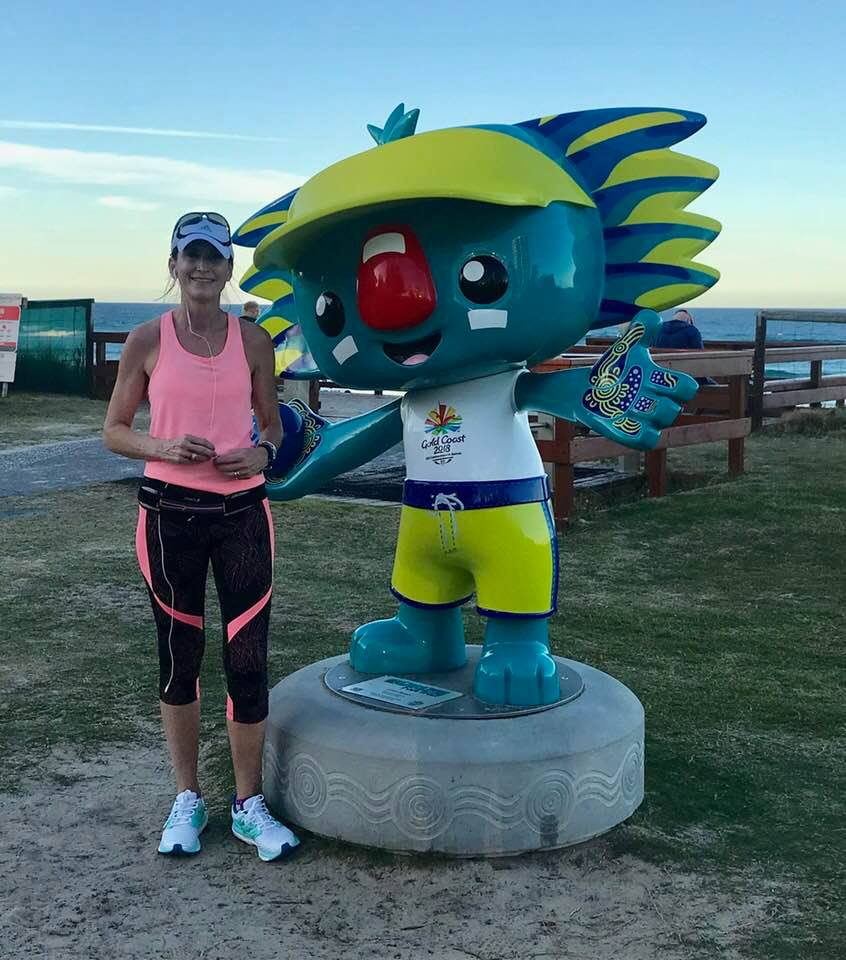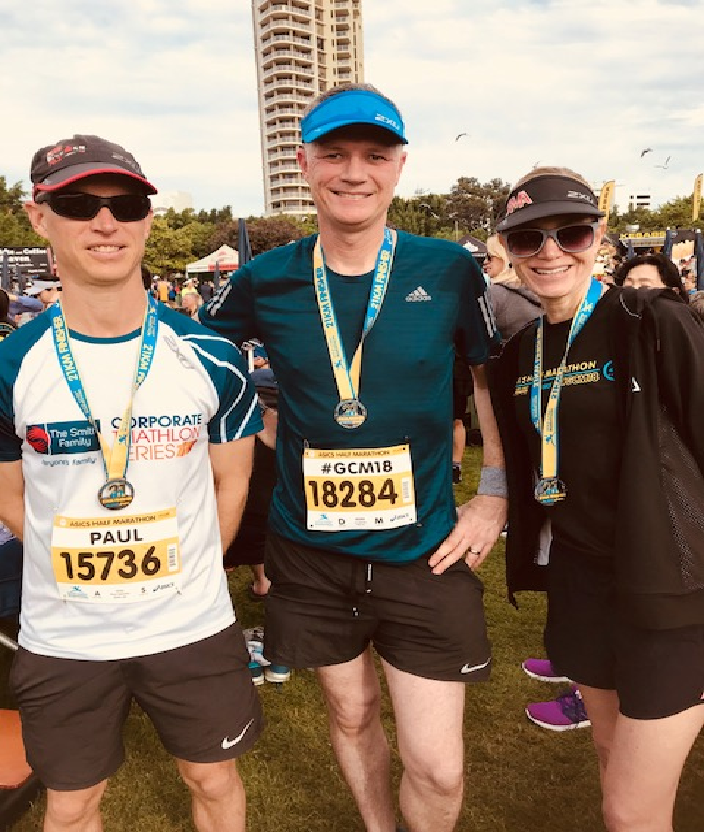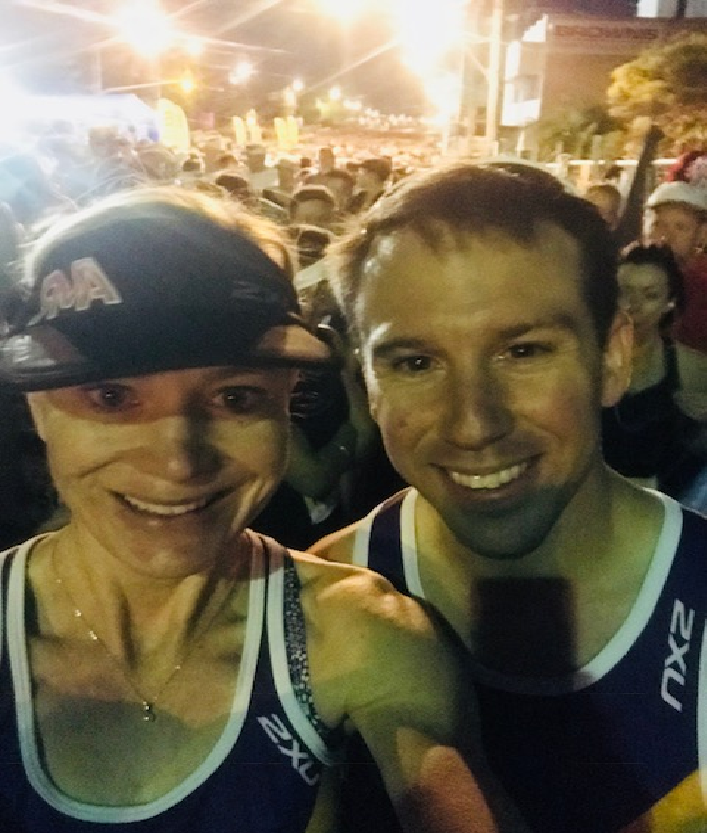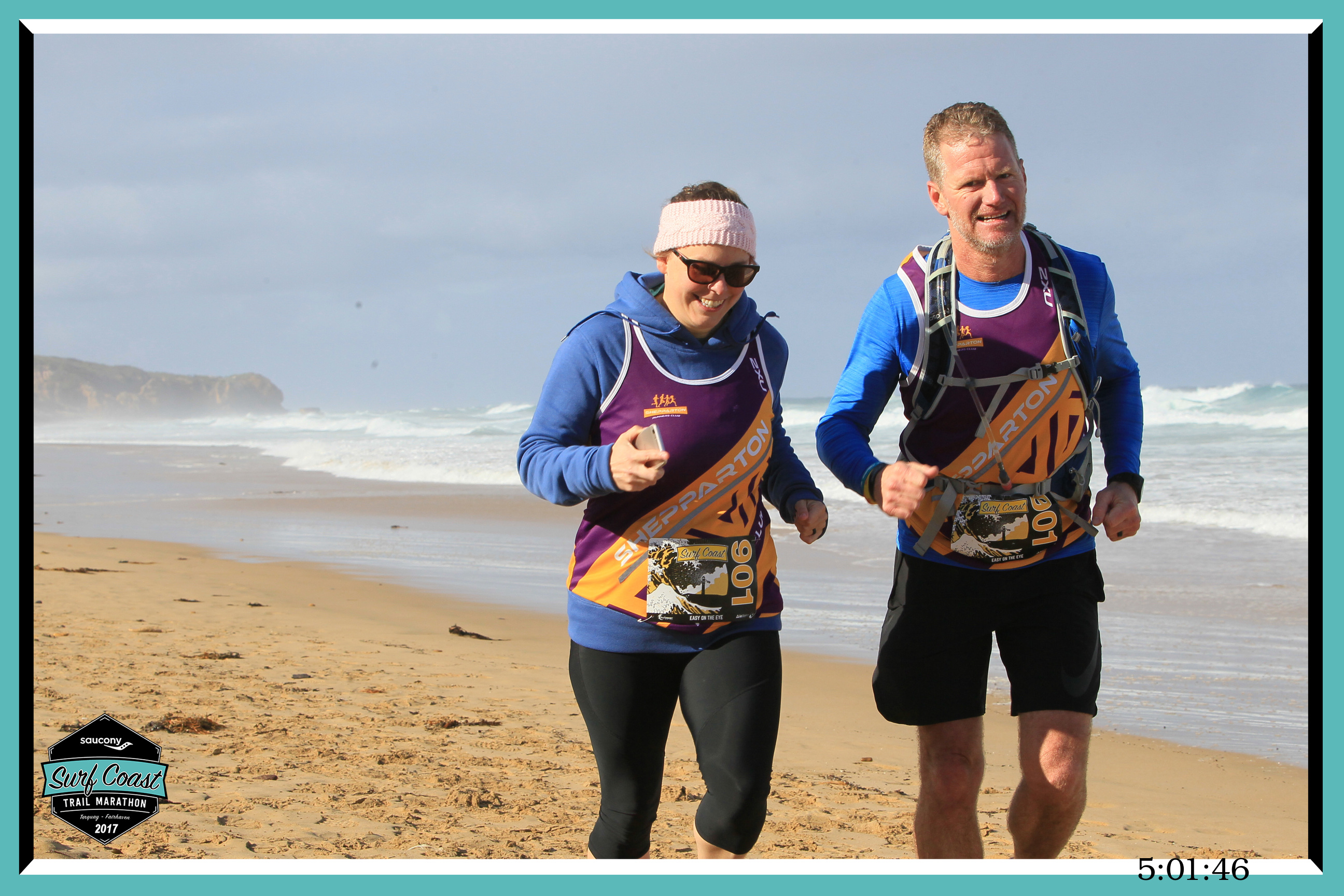SRC E-news July 27
It is with regret we have had to cancel our voice4kidz fundraiser event this weekend with guest speaker Heather Hawkins.
All ticket holders will be refunded their money.
Thank you
Narelle and Kathy
Club News
This weeks schedule – lots of things on!
Monday – Strength and Conditioning at 6pm with Paul Ford at PFAD 37 Rowe Street Shepparton
Tuesday – Intervals at 5:50pm at Victoria Park Lake
Wednesday – Strength and Conditioning at 6pm with Paul Ford at PFAD 37 Rowe Street Shepparton
Thursday – Easy Run at 5:50pm at Princess Park
Happy 19th Birthday Lydia Monk
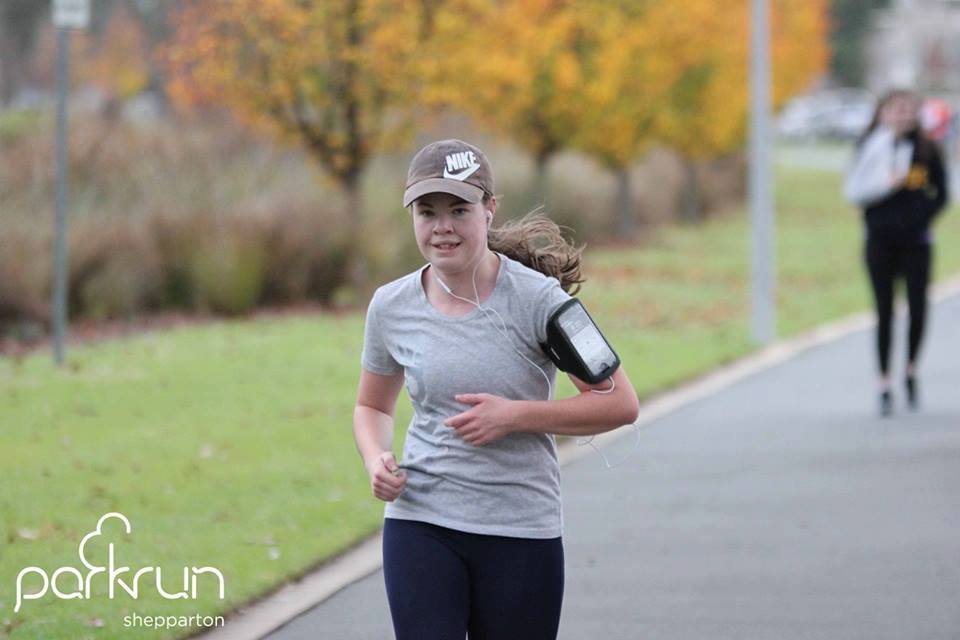
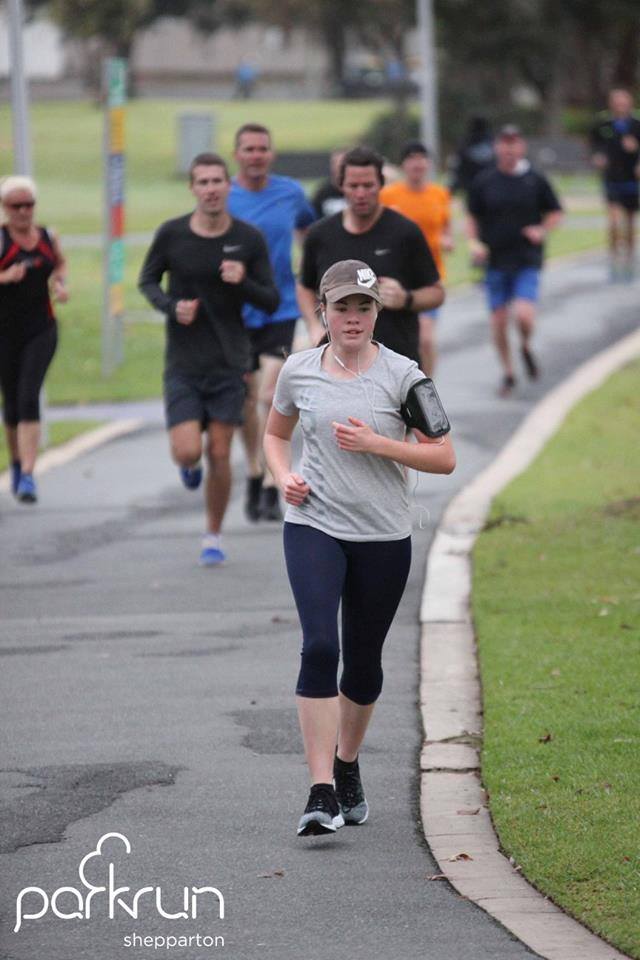
Norah Armstrong, smashing out another PB at parkrun last Saturday.
| 5K | 0:24:29 | 2018 | Shepparton parkrun #232 |
| 10K | 0:56:41 | 2017 | Shepparton Marathon |
| 15K | 1:32:54 | 2017 | Sri Chinmoy Williamstown Foreshore Run |
| Half Marathon | 2:05:57 | 2018 | 2018 Gold Coast Marathon |
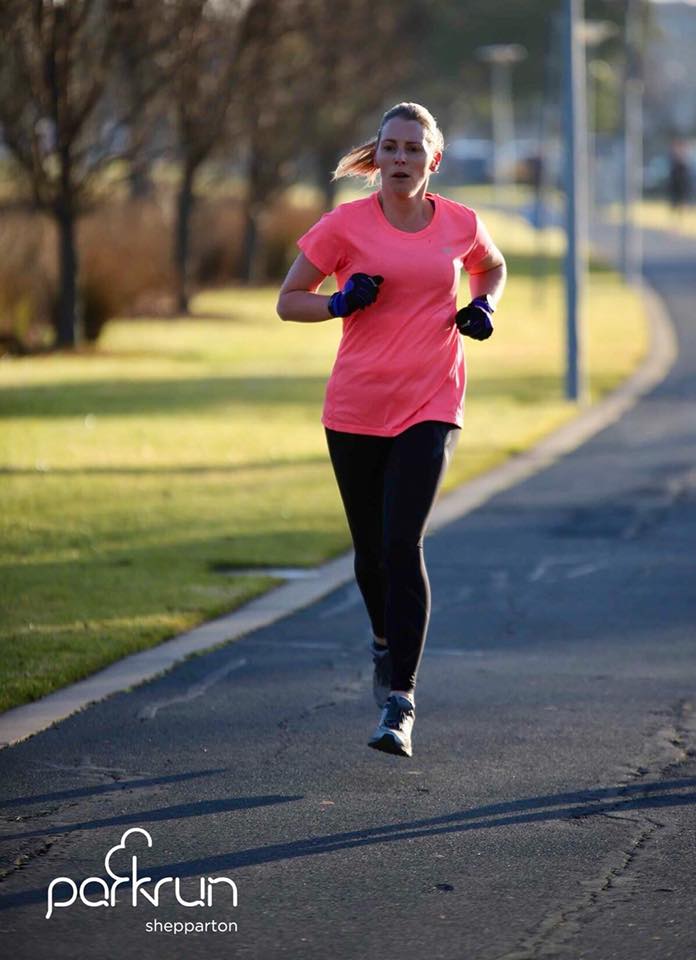
Upcoming Races
Only 1 more week until registration opens for the 2018 Cathedrals Challenge.
Don’t miss out!
We have a half-marathon and a 10k event. Run along Messmate Track, up and over Mt. Sugarloaf, over Jawbone Peak and Cathedral Peak and more!
Some of the most unique terrain that you will find in a trail running event in Australia
Put it down on your calendar now!
Sunday, August 5
We will be holding a 10km event as a tune up ahead of the Shepparton Running Festival. Everyone will start this race together at the same time and have your handicap added to your finish time to determine the winners. The course will be 2 loops of the 5km parkrun course, it’s a good fast flat course, ideal for a PB, and we will have a drinks table set up that you’ll be able to access every 2km.
Start Time – 8am
Venue – Victoria Park Lake – where parkrun starts
Register – On the day from 7:15am or by facebook
Cost – SRC members – $0 Non-Members – $5
Distance – 10kms
These and many more events can be found on our Facebook page under the events tab.
From the running physio
![]() 🔹️Achilles Pain & Glute Activity
🔹️Achilles Pain & Glute Activity![]() 🔹️
🔹️
.
Do you include proximal hip/glute/trunk exercises into your Achilles tendon rehab, your injury prevention program, your running strength program, or your leg workouts?
.
A study (1) into runners with Achilles tendinopathy assessed the activity of the gluteal muscles during the gait cycle, primarily looking at activation around heel strike. The results showed that individuals with Achilles Tendinopathy displayed a delayed activation of gluteus medius and gluteus maximus prior to the onset of heel strike. There was also a reduction in total duration of muscle activation. These findings suggest a link between the mechanics of the hip and the ankle. Note: This study didn’t determine if the activation was implicated in the development (predisposing factor) of the Achilles pathology, or if it occurred as a result of the pain.
.
Take home message: Include glute strengthening and activation exercises as part of your Achilles Tendinopathy rehabilitation! These exercise should be added alongside your tendon loading program.
Inside running podcast by Brady Threlfall.
Fantastic interview with Tim Crosbie some fascinating insights on recreational running, Melbourne Marathon, coaching, elite athletes, Athletics Australia and Victoria – it’s brilliant
To jump straight to the interview with Tim, fast forward to 1:12:00 hours. He starts by talking about the Melbourne Marathon and his involvement in it. Tim also takes about top athletes. He gives SRC a good wrap as he mentions how many running clubs have boomed because of parkrun.
The free iTunes link is here
https://itunes.apple.com/au/podcast/038-tim-crosbie/id1304874265?i=1000416547080&mt=2
Motivation – by Sarah Pye
Sarah is a former SRC member now living in QLD taking on triathlons and blog writing.
Today I am going to talk a little bit about motivation. I’ll try not to make it too long because I am sure that what I have got to say, you would have heard before. Probably many times, I know I have, I read about it all the time, but I wanted to talk about it because I feel like I have been lacking it a little bit lately. You know, just not enjoying my sessions as much as I usually do and having to drag myself out of bed in the mornings.
I think part of it is that it has been a little bit colder than usual lately, (I know it’s still much warmer here than it is down south!) but sometimes the thought of getting in the cold pool at 5.30am in the dark is not very appealing! I think things like that are pretty normal though.
But yesterday this lack of motivation really hit me like a tonne of bricks. I had the day off work and my training schedule called for a 3 hour 45 minute ride in the morning and a 45 minute run in the afternoon. I had planned to get up early and go for the ride around 7am so I would be home by 11am easy. But plans changed, I had to take the car in to get serviced that morning and I didn’t get back from that until ten!
By that stage, I had completely lost any motivation whatsoever. I really didn’t want to do it and came up with every excuse I could think of not to go. I then procrastinated for about an hour before I finally had a bit of a stern talking to myself. Why wouldn’t I want to go and ride my bike on such a lovely day and it’s not like I had anything else to do (besides go for a run and pick up the car).
So I finally got my butt out the door, leaving at the same time I had planned to be home. I just told myself to start and see how I go. But once I got out there, I did actually enjoy it, the sun was lovely and it didn’t seem very windy either (until I turned around to head home!). But that didn’t seem to bother me too much either and I was glad that I went.
I did pike out of the run though because I didn’t get home till about 3pm and by the time I cooked lunch, showered and had a bit of a rest, I got a phone call that the car was ready and had about 15 minutes to get there before they closed. So I jumped back on my bike and peddled down there as fast as my tired legs would take me. I just made it!
Anyway, the point of my rambling is that no one is motivated all the time and if that is what you are relying on to reach your goals then you will never reach them. Motivation is an emotion and just like all other emotions, they come and go, some last longer than others but they always change. Motivation is great to get you started but it comes and goes. Consistency and habit are what gets you results no matter what your goal is.
It’s all about the glutes part 2 by Sarah Pye
As you can see from the title of this post, I thought I would do a follow up to my post it’s all about the Glutes, you can find part 1 here if you haven’t read it yet.
These are some more exercises that I like to include as part of my warm up before a gym session, they can be done before a run or bike training session as well, to help strengthen and activate the Glutes
Read more on Sarah’s blog here
An interesting and honest article about marathon running and recovery.
Everything is burning
By Jessica Trengrove
My lungs feel like a pair of citrus fruits, squeezing their sour juices into my veins with every forced breath. A numbing pressure builds in my lower legs as the two blue shoes ahead of me slowly fade in to the distance. “Looking strong – keep it up,” I shout and veer towards the shade of a bright pink bougainvillea bush. Relief spreads through my muscles as I rest against a rock and admire the view of Sicily’s aqua waters. My partner Dylan has two more rigorous hill repetitions before enjoying the same satisfaction… I am very grateful to be spending my early Marathon recovery in this stunning part of the world.

Three questions that I am commonly asked (and that I periodically ask myself) are: How many Marathons can you run in a year? How long you should wait before getting back into training after a Marathon? Do Marathons get easier after you’ve run a few? My responses have evolved since my first Marathon as a 24-year-old in 2012 and will no doubt continue to do so. With this in mind, here are some thoughts based on my experiences to date.
THE BATH TUB EFFECT
I liken the feeling of running a Marathon to full bath tub having its plug pulled. Preparation is the filling phase and then finally on race day we release the pressure. There is an initial awkwardness as the water finds its course but soon enough it flows with ease. Ultimately the final suction effect of water swirling down the drain happens at the finish however Marathoners know that this is not always the case. Crossing the line evokes a feeling of relief, followed by a severe lack of energy. Your gut is churned up from working overtime to absorb the energy-dense gels and electrolytes with a reduced blood flow. The hours of monotonous contractions leave muscles feeling depleted and distressed. Your eyes sting with every sweaty blink and your brain feels fried. Blisters and skin irritations; formed from the repetitive friction and moisture, sting with movement. Behind the scenes other vital organs start planning their process of repair. They scream for help by triggering thirst, lethargy and eventually hunger. The body wants rest and to be fair, I don’t blame it.
STEP 1: THE BURGER WON’T RUN AWAY
One of the frustrations I faced after Marathon number one and subsequently all ten since, is a feeling of nausea and haziness for 48-72 hours post-race – the time period during which I want to kick back and celebrate the experience. Months of heavy training, stringent routines, discipline and commitment by many people culminates in a couple of intense hours followed by a finish line. During heavy days of training I motivate myself by imagining the extraordinary satisfaction I will feel in that finishing moment. Occasionally I dream about the food I look forward to eating, the activities I will have the energy to do without a heavy training schedule and the people with whom I am excited to spend quality time. It seems however that no concentration of endorphins after 42.195km can override the body’s desire to rest post-race. I have learnt to respect the healing process rather than fight it.
Family members, friends, your coach and your team will be excited to see you and hear about the experience. They will be hanging out to enjoy that burger and beverage with you, as promised prior to the Marathon. That being said they will completely understand if you need some time to collect your coherence, appetite and mojo to celebrate. Experience has taught me not to schedule commitments on race day but rather, to roll with the punches. The same goes with sleep on the night of race-eve; it may happen but a racing heart rate and body full of adrenaline may also cause insomnia. I draw confidence from knowing that some of my best races have come after a poor night of sleep.
STEP 2: LISTEN TO YOUR LEGS
Following the London Olympics in 2012 I could not physically run for about a week. I attempted a shuffle to the food hall on the sixth day post-race and felt like my weary calves were holding on to my heel by a loose thread. My body wasn’t ready to run for a while. Now (ten marathons later) I am able to perform a light fifteen to twenty-minute jog a couple of days post-race if I have the desire to stretch out my legs. This is most likely due to higher strength, endurance and efficiency of relevant muscle groups resulting from years of specific training. I don’t look at my watch or put any pressure on myself to achieve a particular time or distance within the first two weeks of running and I love the freedom that comes with listening to my body. I waited almost three weeks before recommencing jogging after the London Olympics and about six weeks before attempting a proper session. I remember feeling a little unfit but fully recovered for the first two weeks and then a bout of random niggles knocked me off course. Interestingly this post-Marathon pattern has occurred more than once. It seems that my aerobic capacity and motivation to train return before my and neural and musculoskeletal systems are ready. My strategy to manage this is to avoid thinking about my next race until at least three weeks into my recovery. This allows me to recover without the niggling thought of needing to stay fit and gives me the opportunity to make a better-informed decision about how much recovery time I need. When returning to training after a Marathon, it is important to build up slowly and to be flexible with the length, intensity and day on which key sessions are performed. I provide regular feedback to my coach, Adam during this period. If unusual tenderness or fatigue is present when I wake up, cross training or rest is generally best.
STEP 3: IS THE BRAIN READY TO TRAIN?
Another significant learning from my early Marathon experiences and first Olympics was the importance of mental and emotional recovery. Any major goal that one works towards i.e. running a Marathon, involves significant planning, preparation and energy expenditure by not only the subject but also the support team. As the body grows stronger, the mind also builds resilience, anticipation and focus. Eventually, “the moment” arrives and when those final steps are taken to get two feet across the line both the body and mind breathe an enormous sigh of relief.
Representing Australia at an Olympic Games had been a childhood dream of mine and coming off the high of London was a fair shock to the system. The process of achieving a qualifying standard, gaining official team selection and fulfilling pre-event commitments whilst training for a Marathon, working and socialising (albeit less than usual) was more intense than I had expected. Admittedly I felt pretty wiped out by the time the Olympic flame was extinguished. I have since learned that it is not unusual for a bit of confusion and hollowness to be felt in the period following such an all-consuming build up and intense stimulus. Fatigue, reflection, and unknowns about “where to next?” can contribute to these emotions. By understanding that emotional waves may occur, we can implement strategies to best manage them. Scheduling a couple of days away from the hustle and bustle of the city, organising social activities and talking things through with those whom I trust are my go-to strategies. The main question I ask myself before committing to another Marathon is “am I ready to commit to the process of preparing for and racing a Marathon?”
MY RESPONSES…
“How many Marathons can you run in a year?”
Three Marathons per year is generally the recommended maximum by people involved in the sport. My experiences suggest that more than two successive Marathons within twelve to sixteen weeks of each other would potentially increase risk of injury, illness and/or mental burnout. That being said, every individual and situation is different so putting “numbers” to recovery time-frames is difficult. The most important factor is to know and read your own body. I always follow up with my health care providers post-race and assess the situation with my coach to make informed decisions about when to race again.
“How long you should wait before getting back into training after a Marathon?”
My current advice is to go into every Marathon recovery with an open mind and not to force your return to running. Effort, preparation, speed, tactics, nutrition, hydration, terrain, wind, temperature, humidity and footwear all affect how your body responds to the Marathon distance and how quickly it recovers. Regardless of these factors I find that walking, light massage, swimming or dipping my legs in the ocean, a balanced diet and good quality sleep assist with healing and recovery. Be comfortable with walking or cross training until you feel ready to tie up the laces and find your bounce again. When you do recommence running remember to be patient and progress gradually, just like you would with training progressions. If you work with a coach, make sure you keep them updated on how you are feeling so that adjustments can be made accordingly.
“Do Marathons get easier after you’ve run a few?”
I can’t speak for others but they haven’t started getting easier for me yet. The tougher your mind gets, the harder you can push. The more you experience and learn, the wiser you will be. The fitter and stronger your body becomes, the faster the pace you can sustain. If you approach every Marathon with an intent to get the most out of yourself, effort remains the same. The experience may not be easier but it will become more familiar – embrace the challenge.
I hope the above paragraphs answer some of your questions and can assist you in your own Marathon journey in some small way. Thank you and all the best : ).
Jess

For running “tips” you will never ever get at SRC ever….ever…. hilarious!
The expert’s guide to beating the hardest part of the City2Surf
It’s that time of year when runners from across Australia (me included) suddenly realise they have less than a month to get into shape for the world’s largest fun run, City2Surf.
Stunning views as you glide into Bondi Beach, lively roadside entertainment and 80,000 plus happy runners, the event’s most infamous detail is Heartbreak Hill.
Read more here
